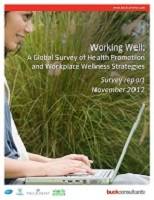To provide the best experiences, we use technologies like cookies to store and/or access device information. Consenting to these technologies will allow us to process data such as browsing behaviour or unique IDs on this site. Not consenting or withdrawing consent, may adversely affect certain features and functions.
The technical storage or access is strictly necessary for the legitimate purpose of enabling the use of a specific service explicitly requested by the subscriber or user, or for the sole purpose of carrying out the transmission of a communication over an electronic communications network.
The technical storage or access is necessary for the legitimate purpose of storing preferences that are not requested by the subscriber or user.
The technical storage or access that is used exclusively for statistical purposes.
The technical storage or access that is used exclusively for anonymous statistical purposes. Without a subpoena, voluntary compliance on the part of your Internet Service Provider, or additional records from a third party, information stored or retrieved for this purpose alone cannot usually be used to identify you.
The technical storage or access is required to create user profiles to send advertising, or to track the user on a website or across several websites for similar marketing purposes.








 Less than half of organizations worldwide actively apply the basic elements of a health management programme, with just a third having a formal strategic plan for health and wellness. This is according to Mercer’s Talent Barometer research which explores key accelerators of talent effectiveness – education, health and wellness, and career experience – and their impact on successful workforce practices. While employers are investing in talent, with 60 per cent of organizations increasing spending in this area in recent years, only 24 per cent say their current plans are highly effective in meeting immediate and long-term human capital needs.
Less than half of organizations worldwide actively apply the basic elements of a health management programme, with just a third having a formal strategic plan for health and wellness. This is according to Mercer’s Talent Barometer research which explores key accelerators of talent effectiveness – education, health and wellness, and career experience – and their impact on successful workforce practices. While employers are investing in talent, with 60 per cent of organizations increasing spending in this area in recent years, only 24 per cent say their current plans are highly effective in meeting immediate and long-term human capital needs.


 Did
Did










May 28, 2025
The amenity trap: why more isn’t always better
by James Mohsen • Comment, Property